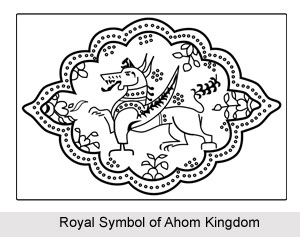 Supimphaa was the ruler of Ahom kingdom in the period of 1493 CE to 1497 CE. His reign was marked by an aura of terror among both low and high classes of the society. He had even sent one of his pregnant wives to exile in the Naga Hills, owing to a minor fault. Later, his wife gave birth to a boy who was called as Kancheng. In the following periods Kancheng was appointed as the first Borpatrogohain of the kingdom. In his lifetime Supimphaa had showcased courage and military geniuses. Supimphaa was born to Suhenphaa, an Ahom king. His father was assassinated in 1493 CE after which Supimphaa succeeded the throne as the king.
Supimphaa was the ruler of Ahom kingdom in the period of 1493 CE to 1497 CE. His reign was marked by an aura of terror among both low and high classes of the society. He had even sent one of his pregnant wives to exile in the Naga Hills, owing to a minor fault. Later, his wife gave birth to a boy who was called as Kancheng. In the following periods Kancheng was appointed as the first Borpatrogohain of the kingdom. In his lifetime Supimphaa had showcased courage and military geniuses. Supimphaa was born to Suhenphaa, an Ahom king. His father was assassinated in 1493 CE after which Supimphaa succeeded the throne as the king.
Right after becoming the king, Supimphaa started his search for the conspirators who plotted the assassination of Suhenphaa, his father. Consequently the lead of the conspiracy, Lantarunban, was arrested along with his two sons Khuntao and Taophrong and all of them were executed. Punishments were also bestowed on the companions of Lantarunban who were also involved in the conspiracy. In the search operations, it was found that Khunlung Burhagohain was also indirectly associated with the assassination of Suhenphaa. When the truth came out, he fled from his quarter in fear of punishment. The king thus dismissed him from the office immediately and another member of Burhagohain family namely Khunlung Khampeng was appointed as the new Burhagohain. Khunlung Burhagohain was later arrested but on the request of the nobles he escaped capital punishment. As punishment his property was then seized and he was sent to exile to his residence at a village.
Ahom kingdom had amicable relations with the Nagas from the reign of Suhenphaa, father of Supimphaa. The people of the tribe used to come every year to pay respect and tribute to the king of the Ahom kingdom. Once, one of Supimphaa`s wives admired a Naga chief, who had come for the tribute, for his beauty which was overheard by the king. This enraged the king greatly and as a punishment he exiled the queen to the village to which the Naga chief belonged. His wife was however pregnant at that time. Later a son was born who was named as Senglung who was later popularly known as Kancheng. The throne of Supimphaa was later succeeded by Suhungmung. When Suhungmung found out about his brother Kancheng, he brought him to the court appointed him as Borpatrogohain, a newly created post which was equivalent to the posts of Borgohain and Burhagohain. Kancheng Borpatrogohain had major contributions in a number of battles which took the Ahom army as far as the banks of Karatoya River along the west of Kamrup kingdom.
Supimphaa`s strict administration was evident in the punishments he bestowed on the people involved in the assassination of his father. These actions of the king even scared the nobles of the kingdom. Death of Supimphaa was sudden and its reasons vary in different chronicles. Some chronicles state it as a natural death while some suspect it to be an assassination. Gunaviram Burua, the famous Assamese historian had stated that the strict administration of the king had created terror among the nobles who ultimately assassinated Supimphaa and spread the news that the king died a natural death. Suhungmung was the son of Supimphaa who succeeded his father`s throne.



















